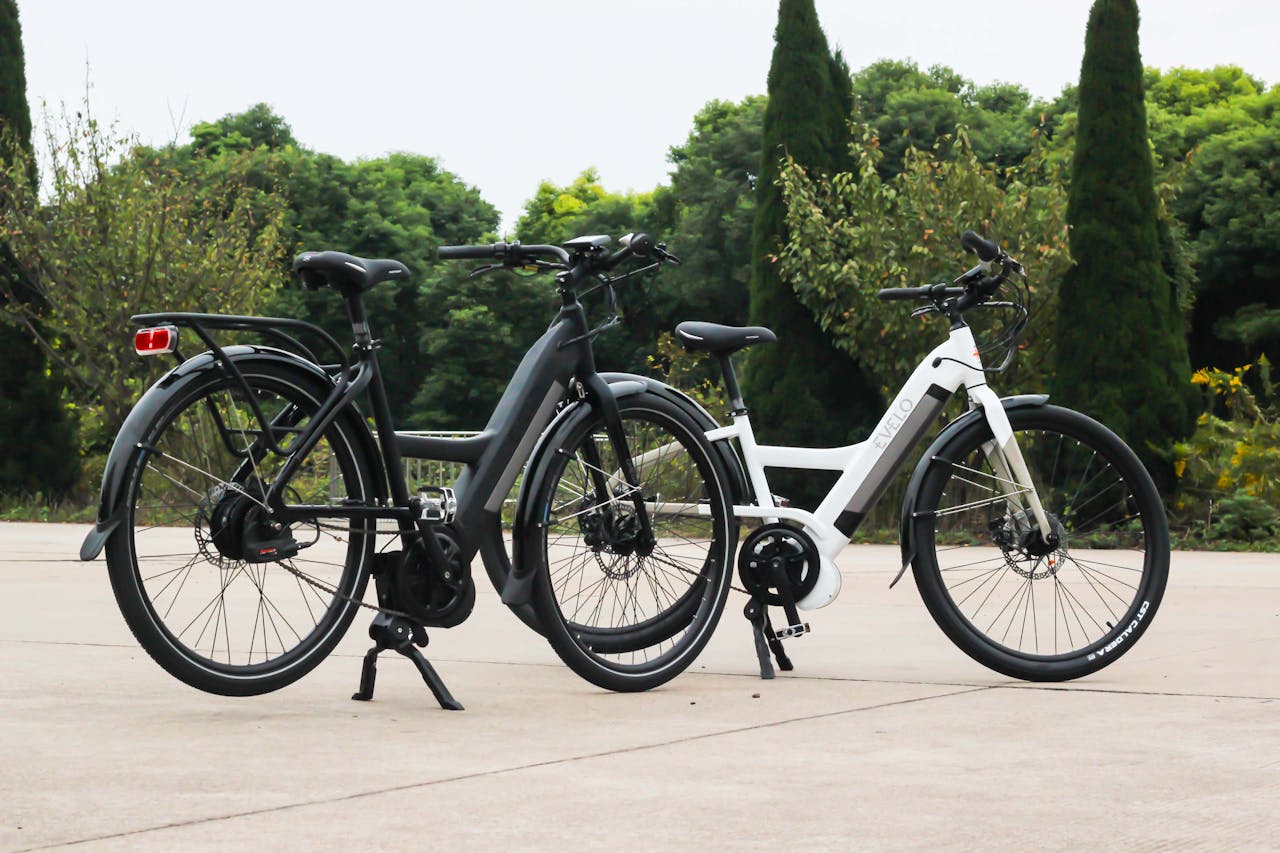E-bikes or electric bikes have increased in popularity in the recent years as a very practical and eco-friendly way of transportation. As their use becomes more and more common, a question arises: Do electric bikes need to be registered?
The answer is complex and depends significantly on the type of electric bike and location of electric bike. This article will help you explore the factors influencing electric bike registration requirements, the types of electric bike and what you need to be aware of in order to stay compliant with local regulations.
What Are Electric Bikes?

Electric bikes are modern bicycles equipped with an electric motor which assists them with pedaling. They are available in various styles and arrangement which offers them different levels of motor assistance and agility. Generally, electric bikes are categorized in three classes:
- Class 1: These are electric bikes which provide pedal assistance only when their rider is pedaling and have a top speed of 20 mph.
- Class 2: These are the electric bikes which contain a throttle that can propel the electric bike without peddling and they’re also with the top speed of 20 mph.
- Class 3: These are the electric bikes which provide pedal assistance for up to 28 mph and they may or may not include a throttle.
These classifications of electric bikes influence whether or not it needs to be registered, as different rules and jurisdictions apply varying regulations based on the class of electric bike.
Registration Requirements of Electric Bike by Region
United States of America
In the United States of America, the need for electric bike registration is not constant and can defer by state and even by city. Here is a broad overview:
- New York City: New York City does not make it compulsory for the registration of electric bikes. However, riders must follow a specific list of rules, such as using bike lanes and not exceeding the prescribed speed limits. The city has been known to enforce the rules and regulations on electric bikes with certain modifications or those that bypass specific speeds.
- California: Similarly, electric bikes in California do not require registration. In California, Class three electric bikes have additional restrictions like not being allowed on certain bike paths. Riders must be at least 16 years old and helmets are required for all riders who are under 18 years of age.
- Florida: Electric bikes are not required to be registered in Florida, but local regulations may differ. Riders must check with local authorities to ensure the compliance with local rules and ordinances.
- Texas: Texas does also not require electric bikes to be registered. Texas also follows a similar classification system to California, but local councils may have their own rules and regulations regarding electric bike use on specific roads, paths or trails.
Europe
In Europe, Electric bike registration regulations are also very diverse:
- United Kingdom: Electric bikes that abide by the United Kingdom’s definition (pedal assisted up to 15.5 mph) are not needed to be registered. The speed pedelecs are categorized differently and may need to be registered and insured accordingly.
- Germany: In Germany, electric bikes are classified into different categories. Pedal assisted electric bikes (up to 25 Km/h) are not required to be registered or insured. However, if an electric bike has a top speed above 25 km/h or is categorized at as a speed pedelec (up to 45 km/h), it requires to be registered and insured, and the rider must always wear a helmet while riding it.
- France: Similar to Germany, electric bikes with speeds which exceed 25 km/h are required to be registered and insured. Electric bikes with low speeds do not have such requirements which means they do not need to be registered.
Canada
In Canada, electric bike registration is varying by provinces:
- Ontario: Electric bikes do not need to be registered but they must meet certain list of specifications such as having a maximum speed of about 32 km/h and the riders are also required to wear helmets.
- Quebec: Electric bikes are not required to be registered in Quebec. The rules and regulations focus more on where the electric bikes can be used and the importance of wearing helmets.
- British Columbia: Similarly like the other two, electric bikes are not required to be registered but the riders must follow specific rules and regulations including the use of helmet and following the speed limits.
Do Electric Bikes Need to Be Registered?
Factors Influencing Registration of Electric Bikes
Many factors affect whether or not an electric bike needs to be registered:
- Motor Power and Speed: the electric bikes which have a higher motor power, or a higher speed capability often faces strict set of rules and regulations. For example, speed pedelecs and high-powered electric bikes may require registration as well as insurance and more firm safety equipment.
- Usage: Your registration needs can also be influenced by how and where you plan to use your electric bike. For example, using an electric bike on someone’s private property or in certain local parks might have different rules as compared to using it on roads.
- Local Laws: Jurisdiction rules can have a great impact on the registration requirements. Some cities or councils may have additional rules and regulations beyond state or national one’s, making it important for electric bike owners to normalize themselves and familiarize with the local laws.
Why Registration Might Be Required?
As we know that many places do not require electric bike, there are many reasons why it might be beneficial or important in certain areas:
- Safety: The registration of electric bike ensures that it meets safety standards, and it is equipped with the necessary and important safety features.
- Accountability: Registering your electric bike helps you track ownership and in case if it is stolen it can be recovered.
- Insurance: The electric bikes which are registered may be eligible for insurance coverage and providing financial protection in case of accident or theft of the electric bike.
Conclusion
The requirement to register electric bikes differs widely across different regions of the world and is influenced by factors such as speed, motor power and local rules and regulations. In general, many places do not require electric bikes to be registered but there are exceptions for high speed or high-power models of electric bikes. It is important for electric bike owners to read local laws and regulations so they can avoid any potential penalties or fines and ensure compliance.
As electric bikes are becoming popular and growing, it is likely that the rules and regulations will evolve and change. Staying up to date about the latest rules and guidelines in your area will help you enjoy the benefits of electric bikes while staying in the legal framework and being safe.
I hope that you got a decent explanation on “do electric bikes need to be registered”.











Really helpful article!! I was planning on buying an E-bike and was wondering about the registration and whether it’s required or not and this article cleared all my queries.
Thankyou to the author!